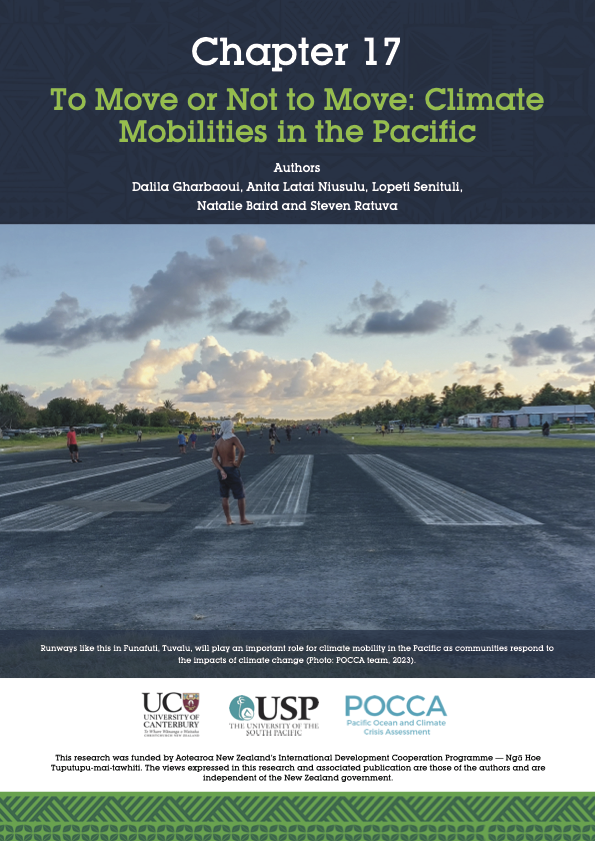
Authors
Dalila Gharbaoui, Anita Latai Niusulu, Lopeti Senituli, Natalie Baird and Steven Ratuva
Abstract
Mobility is not new in the Pacific region as Pacific peoples have been moving from island to island across the vast Pacific Ocean for centuries due to are changing climate and other reasons such as conflict or search for new land. Climate mobility is now seen as a coping mechanism to adapt to sea level rise, coastal erosion and increased intensity and frequency of rapid-onset environmental events such as storm surge. The climate crisis has already led to relocation of some Pacific communities to higher grounds and to other islands. Many more are earmarked for relocation. For some small atoll communities, there is nowhere to relocate within the island, so they face a serious dilemma. For some, the future lies with inter-island migration or trans-national movement between Pacific Islands Countries and Territories (PICTs). Some countries such as Fiji have considered this possibility for those from Kiribati and Tuvalu. Another option is migration to countries outside the PICTs such as New Zealand and Australia, or beyond. Pacific communities are amongst those most at risk of being displaced by the increasing frequency and intensity of climate-related extreme weather events. In some cases, displaced communities can return home soon after disasters and in many other cases their homes and land are lost, leaving them displaced for years to come. This chapter explores the issue of climate mobilities in relation to relocation, migration and displacement of Pacific communities. This is done by exploring some of the legal, political, and economic implications of climate mobility in both original and destination countries. It also looks at the international and national legal instruments, processes, and institutional responsibilities for climate migrants. Relocation as a process (both temporary and permanent, long-term and short- term) is also explored, along with problems associated with land disputes, resource sharing, travelling knowledges and Indigenous culture and sense of place. Relocation can lead to loss of place, cultural roots and customary lands. Related to this is the significance of Pacific perspectives on climate mobilities lens which could contribute to providing useful policy directions based on lessons learnt from communities in the Pacific.
Rights
All rights reserved. This book is in copyright. No part must be republished without permission of the publishers.
